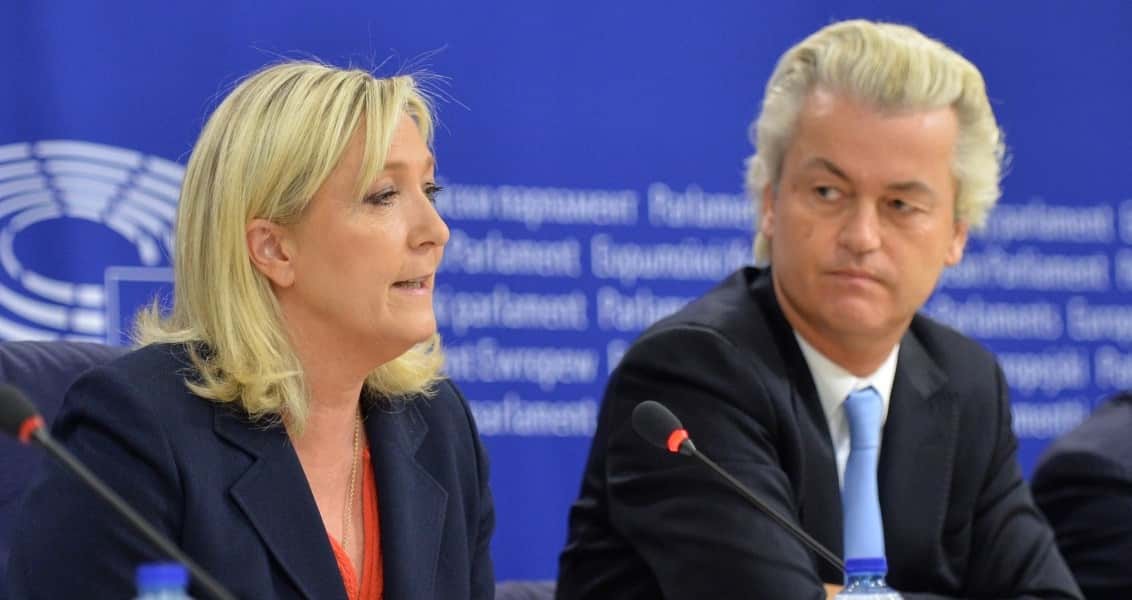
Brave new world of micro-nationalism
The West does not seem to be bothered much about the rising tide of micro-nationalism in the Middle East, which is categorically perceived as an endemic conflict zone
Share
It is needless to say that when nationalism goes beyond patriotism and the compassionate desire to serve the homeland, it can easily turn into a politically motivated destructive force with the potential to radically destabilize societies. History over the course of the last two centuries is replete with examples whereby grandiose empires were destroyed, international and civil wars were precipitated and human tragedies and genocides were committed under the influence of extreme forms of nationalism. Periods of political, diplomatic and economic crisis in the international system triggered escalating waves of nationalism illustrated by the systemic crises in the 1870s, 1930s and 1970s. In this context, the immediate aftermath of the global economic crisis in 2008 also saw a substantial rise in nationalist sentiments in Europe in the wake of rapidly deteriorating social life standards and falling income levels. Far-right political parties gained ground in Germany, the U.K., France and the Netherlands by utilizing the negative socio-economic impact of the euro crisis and blaming religious minorities led by Muslims as well as migrants for all difficulties experienced by European nation-states. There were contemporaneous trends in the U.S. fostering the spread of extreme forms of Islamophobia, xenophobia and racial and religious discrimination.
At the beginning, the rising tide of extreme nationalism was not taken very seriously by political establishments in the West. There was an implicit assumption that these movements would wonder on the margins of mainstream politics for a long time without much influence on actual policy formulation processes. But swiftly shifting dynamics of electoral behavior, which gradually weakened social-democratic parties and strengthened first mainstream right and then far-right parties in the West completely changed socio-political calculations. Marginal figures such as Geert Wilders in the Netherlands and Marine Le Pen in France entered the club of mainstream European political actors, while Donald Trump was surprisingly elected U.S. president. While these developments were taking place on the Western front, President Vladimir Putin was swiftly promoting his own brand of nationalism in Russia with renewed emphasis on the grandiose legacy of the tsars, while rising economic powers, such as India under Prime Minister Narendra Modi and even China, were embracing their peculiar forms of developmental nationalism.
The reflection of this global tide of rising nationalism on the already volatile Middle East crystallized through the surfacing of micro-nationalisms in the aftermath of the Arab revolutions starting in 2010. When authoritarian leaders such as Saddam Hussein in Iraq, Moammar Gadhafi in Libya, Ali Abdullah Saleh in Yemen and Zeynel Abidin bin Ali in Tunisia disappeared from the political scene, various ethnic and sectarian groups previously living under the control of oppressive regimes perceived the moment as an opportunity to seek self-determination and independence. Therefore, restoration of political authority turned into a protracted and painful process in many countries interrupted by civil wars, internal strife, harsh elite competition and rival claims for statehood. Syria, Libya and Yemen turned into failed states and open war zones among different factions as well as intervening regional and global powers, while Iraq stood just on the brink to remain a united, sovereign state. Visible or camouflaged interventions, manipulations and inducements by global powers were frequently behind the competing claims of minority national entities for self-determination and independence.
To illustrate, the U.S., and partly Russia, supported the PKK Syrian affiliate Democratic Union Party (PYD) in northern Syria to constitute an energy corridor and prepare the groundwork for some form of micro-nationalism there. But more importantly, Masoud Barzani, the recently resigned president of the Kurdistan Regional Government (KRG) in northern Iraq, pushed for an illegitimate referendum for full independence with the tacit support of global powers. The micro-nationalism of Barzani failed to bring together northern Iraq's Kurds and ended in abysmal failure, costing him his political career and perhaps the relative stability of northern Iraq at the end of an effective response through Turkish, Iranian and Iraqi collaboration.
The West did not seem to be bothered much about the rising tide of micro-nationalism in the Middle East, which is categorically perceived as an endemic conflict zone. But it was shocking to see news of micro-nationalism coming from Spain where the divided parliament of Catalonia voted in favor of a plebiscite on full independence. The Spanish government responded harshly against the Catalan administration's decision by not recognizing the plebiscite, cancelling all powers related with regional autonomy, sacking the whole regional administration and even imprisoning some of the former Catalan ministers. The status of Catalan President Carles Puigdemont, who sought asylum in Brussels from an arrest warrant issued by Madrid, is set to turn into an international quagmire and European crisis.
Catalonia, which includes Barcelona, represents one of the epicenters of the new generation of European micro-nationalism, which flourishes in relatively more prosperous regions reluctant to share their wealth with the wider society. Although there are added historical and cultural factors that need to be taken into account, the feeling of economic insecurity seems to motivate similar movements of micro-nationalism in northern Italy, Bavaria in Germany and the French Riviera. Brexit was the first concrete national attempt against the European integration project, and it seems to have triggered wider dynamics of national and sub-national disintegration.
Global and European powers will be better off supporting territorial integrity of Middle Eastern and developing states to avoid the boomerang of micro-nationalism and disintegration in their own backyard.
[Daily Sabah, 4 October 2017]
Tags »
Related Articles





